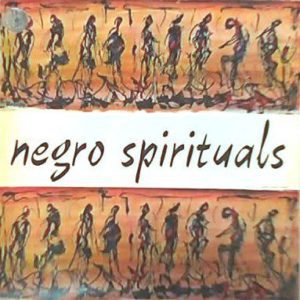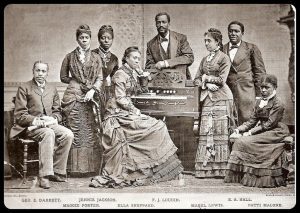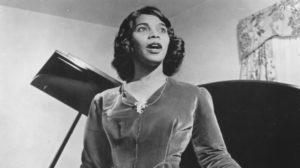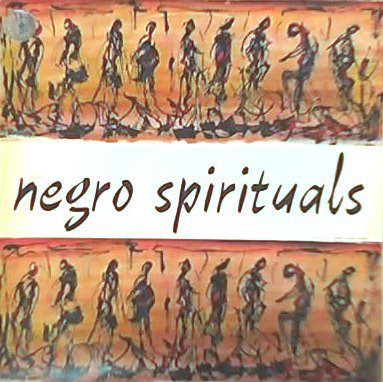
Negro Spiritual and Folk Origins
When Africans were enslaved and brought to the New World, not all of their African identity was stripped away. These people were able to bring the intangible aspects of their spirit, one of which was their spirituality and cultural rhythms. These elements blended into what is deemed “the Negro Spiritual” and folk music. Folk music is a derivative of negro spirituals. Negro Spirituals talk of the plight endured by these enslaved peoples. During the times of harsh adversity, the songs were a way to encapsulate the perseverance and cultural ties of black slaves.
Characteristics of the Negro Spiritual and Folk Styles
An important note about Negro spirituals is that many of these songs were anonymous, meaning that the artist(s) were unknown. This is due to the lack of resources had by African slaves and the erasure of their identities from history. Many of the spirituals were passed down generations by word of mouth. Negro spirituals and folk music contain heavy religious and spirituals influences. Negro spirituals represent traditional sacred songs, while folk music served as the secular derivative. Another main feature of these spirituals is the idea of expression of self. Many of these spirituals were quite personal to the unknown authors. The rhythms and sounds emulated the perspectives of the slaves, in that personal experiences were included in the lyricism of the spirituals and folk songs.
Social Implications of the Genre
The early Negro spirituals and folk songs gave rise to personal advocacy for “better days” that were to come. The vast majority of slaves were purposefully uneducated with no human rights. These spirituals served as a way to give a voice to those who would otherwise have no position. Slaves were silenced as a way to control power dynamics, so this genre gave them a way to combat their oppressive circumstances.
Important Performers of the Genre
- Fisk Jubilee Singers

- Marian Anderson

- Tuskegee Institute Choir
- Paul Robeson

- Unknown Artists (Erased in History)
Many of the artists of this genre are unknown because their identities were lost in history.
Influences of Future Genres
Negro Spirituals and folk music laid the groundwork for all future music made by and for black people. The consciousness emulated through these pieces transcended generations to provide a foundation for other traditional and secular styles. Without these spirituals and folk songs to go off of, early arranged spirituals and gospel would not include the major sense of sound made by these “first” black songs.
Commodification
Of course a black story would not be a black story if there were not whites who tried to control the narrative and the agenda. Negro spirituals and folk music were made for and by black people in order to show the struggles of their people. The songs gave humanizing efforts to black people as a way to emphasize their individuality. However, white owners would force slaves to perform these songs for others. The white enslavers took the property of the slaves and turned them into social showings of their slaves. This further objectified black people into their subjugated roles in society.
Conclusory Opinions
This genre was an important milestone in the plight of black slaves. It served as an outlet for the atrocities and turmoil that they experienced. Negro spirituals and folk music are still relevant in today’s music as elements are still seen in contemporary gospel. These songs have been passed down from generation to generation to highlight the experiences of our ancestors.


